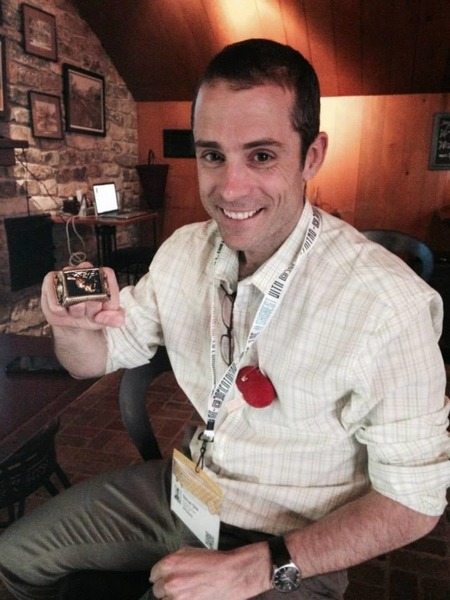It’s a Microbial World. We’re Just Living in It.
-
-
slice.mit.edu
Filed Under

Recommended
Caption: Bernat Olle SM '05, MBA '07, PhD '07.
No matter where you are, you are surrounded by your microbiome—the complex biological system of more than 100 trillion microorganisms on the human body, in airwaves, and in every environment.
“You may not know it, but you’re walking around with two pounds of microbes on you,” says Bernat Olle SM ’05, MBA ’07, PhD ’07. “But only recently have scientists discovered how important and how useful they can be.”
Research in the field of the microbiome is still in its early stages, but it has already shown that microbes play important roles in metabolism, digestion, and even mood. And Olle is one of a growing group of engineers focusing on this area.
“Modern habits have been to clean up and sterilize everything—make it clean as possible,” he says. “But we’re starting to find out this might not be a good idea—and we’re abusing anti-microbial chemicals. These microbial exposures can help develop key human functions.”
Olle is co-founder and COO of Vedanta Biosciences, a Boston-based startup that researches interactions between the human microbiome and the immune system. He spoke to Slice of MIT at the 2015 South by Southwest (SXSW) Interactive, where he was part of a three-person panel that discussed the benefits of microbes and the impact they could have on medicine in the future.
“In the future, I don’t think we’ll be saying, ‘all microbes are scary—stay away,” he says. “For example, if a diseased person is missing certain microbes that are very common in healthy people, we could generate a hypothesis that maybe these microbe are involved in preserving health. If we systematically test these hypotheses, that can be a starting point for creating a new drug.”
More specifically, Olle’s research has suggested that microbes may be able to train the part of the human immune system that is responsible for preventing autoimmune diseases. The result of this successful experiment were published in the journal Nature, and Olle was named “Innovator of the Year” by MIT Technology Review Spain.
“It’s a new wave of science but the results are already here,” he says. “We already have treatments in clinics that are being used to save lives.”
Olle has been active entrepreneur and scientist since earning graduate degrees from the department of chemical engineering and MIT Sloan on 2007. He has co-founded four biotechnology companies, including Vedanta, that have focused on baldness, food safety, and technology platforms for drug development.
“For me, chemical engineering and Sloan were a perfect fit,” he says. “You’re exposed to business principles and engineering skills. It’s an explosive cocktail for entrepreneurship.”
Olle was one of more than 100 MIT alumni who presented at the South by Southwest festival.
“There’s such a strong tech orientation at the conference, combined with a little bit nerdiness,” he says. “It goes perfectly with the MIT psyche—the Techie nerve. You could just as easily have this conference right in Cambridge.”







